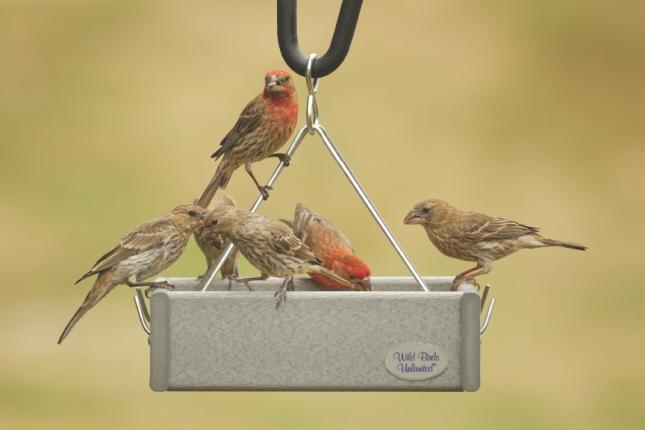Bird Health
While illness and disease can occur at any point throughout the year, flocking behavior puts our feathered friends at higher risk - flocking happens most during Spring and Fall Migration and during the Winter when that flocking ensures safety and survival.
If you enjoy feeding and watching your backyard birds, then you probably want to do as much as you can to practice your hobby safely and ensure the birds’ overall health and well-being. While the incidence of birds falling ill from feeders is small compared to other natural hazards birds face, there are things you can do to help your birds stay healthy - Mainly practicing responsible feeding and keeping a clean feeding station! Here are some tips to help keep your feathered neighbors safe:
- Provide multiple feeding stations in different areas of your yard to disperse bird activity - This can also be a great way to separate your big and small birds so everyone can coexist peacefully and you can attract the biggest variety of birds to your yard!
- Provide seed from feeders rather than scattering it on the ground - Low tray feeders are a great way to feed ground feeders while still being able to clean your feeding surface and keep seed from getting damp or dirty.
- Keep areas clean under and around your feeders.
- Keep fresh seed in the feeder and be sure it doesn’t get moldy - you can also limit the amount of seed you provide to help keep it fresh. We recommend offering only as much food as the birds will eat in a few days and make sure you use any food up within 4-6 weeks of bringing it home. Always discard any seed that has become wet, moldy, or foul smelling.
- Clean your bird feeders and baths regularly - we recommend a solution of 50:50 white vinegar to water for normal cleanings and to use a bleach solution if you do see a sick bird
- Store all bird seed in rodent proof containers to avoid contamination.

We closely monitor all available information on diseases that are being seen in our area, click these links for the most up-to-date information on Avian Flu and House Finch Eye Disease. If you have questions please contact us or feel free to stop by the store, we are always happy to answer any questions you may have!

